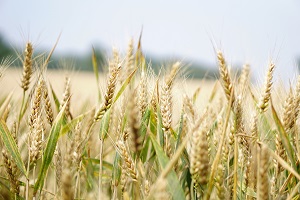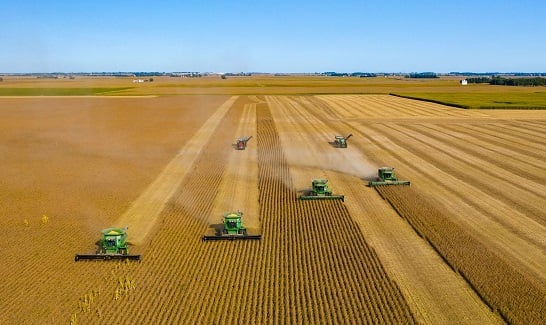During Rosh Hashanah 2021, we welcomed the beginning of the Hebrew year 5782. While it may feel like just another year, 5782 is a big deal in the Land of Israel — it is a shmita year.
What does shmita mean? How does this affect Jewish communities outside of Israel? Where does this shmita thing come from? We have the answers!
What is shmita?
Shmita (שמיטה) is a Hebrew word that literally translates to “release,” but colloquially, the shmita year refers to the seventh year in the agricultural harvest cycle that was determined by the Torah. Sometimes, this year is also called שביעית, or shevi’it, meaning seventh. There is also an entire tractate of the Talmud called Shevi’it, which goes more in-depth into the laws surrounding this special year.
What happens during the shmita year?
During the shmita year, Jewish law forbids all agricultural activity in the Land of Israel, including plowing, planting, pruning and harvesting. There are also many laws from the Mishnah and Tanakh that explain how fruit, vegetables, grains, and other produce that ripens and is harvested during the shmita year can be consumed, sold, and disposed of.
Just like the Torah commands the Jewish people to work for six days and rest on the seventh, the land is given a chance to rest and replenish itself on the seventh year.
What are the sources for the shmita year?
The first Biblical mention of the shmita year occurs in the Book of Exodus:
"You may plant your land for six years and gather its crops. But during the seventh year, you must leave it alone and withdraw from it. The needy among you will then be able to eat just as you do, and whatever is left over can be eaten by wild animals. This also applies to your vineyard and your olive grove."
In Leviticus, we are reminded:
"God spoke to Moses at Mount Sinai, telling him to speak to the Israelites and say to them: When you come to the land that I am giving you, the land must be given a rest period, a sabbath to God. For six years you may plant your fields, prune your vineyards, and harvest your crops, but the seventh year is a sabbath of sabbaths for the land. It is God's sabbath during which you may not plant your fields, nor prune your vineyards. Do not harvest crops that grow on their own and do not gather the grapes on your unpruned vines, since it is a year of rest for the land. [What grows while] the land is resting may be eaten by you, by your male and female slaves, and by the employees and resident hands who live with you. All the crops shall be eaten by the domestic and wild animals that are in your land...
And if ye shall say: 'What shall we eat the seventh year? behold, we may not sow, nor gather in our increase'; then I will command My blessing upon you in the sixth year, and it shall bring forth produce for the three years. And ye shall sow the eighth year, and eat of the produce, the old store; until the ninth year, until her produce come in, ye shall eat the old store."
The shmita year is also mentioned in Deuteronomy, as well as in the Books of Jeremiah, Nehemiah, Chronicles, and Kings. Kabbalistic writings have also explored the shmita year extensively.
Does shmita affect agriculture outside of Israel?
No! The shmita year and its laws only apply to Jewish farmers in the Land of Israel, which doesn’t even include all of what makes up the State of Israel today. For example, some farms in Israel’s southern Negev Desert are not within the Biblical boundaries of the Land of Israel and are therefore exempt from observing the shmita year.
How do Israelis get produce during the shmita year? What do farmers do?
Fruits and vegetables sold in the Land of Israel during a shmita year may be derived from five sources:
- Produce grown during the sixth year, to which the laws of the seventh year do not apply.
- Produce grown on land owned by non-Jewish farmers in Israel
- Produce grown on land outside the halakhic boundaries of the Land of Israel, like farms in the Negev or in the diaspora
- Produce (mainly fruits) that is distributed for free according to Jewish law
- Produce grown in greenhouses or through hydroponics
While many modern Israeli rabbis have tackled the subject, even Maimonides wrote responsas that addressed the shmita year. There are varying opinions: some rabbis say the shmita year does not need to be observed anymore, while others issue strict guidelines for Jews living in Eretz Yisrael to best observe the year according to Jewish law. If you live in Israel and are unsure, it is best to ask a local, trusted rabbi.
What is the point of the shmita year?
The shmita year serves as a reminder that the Land of Israel was given to the Jewish people and that they are responsible for taking care of it with the land’s best interests at heart, rather than exploiting the land endlessly for profit.
A major part of the shmita year is also debt forgiveness. In Deuteronomy 15:1-2 we are told that at the end of every seventh year that every creditor shall release the debt that he holds for his/her neighbor: “All of those who bear debt must release their hold.”
The shmita year is an opportunity for rest, release, and reflection. Many modern Jewish organizations that advocate for solutions to poverty, hunger, and other issues often create materials and events throughout the shmita year to help others understand the Biblical concept through a contemporary lens.













